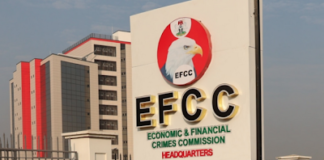PRESS RELEASE
Nigeria’s animal feed sector remained underdeveloped, due to high cost of ingredients and other production factors, which resulted in market dislocation
ABUJA, Nigeria, April 13, 2023/ — Federal Government and Development partners have proffered roadmap for National Alternative Feed resources to reduce cost of production and effects of incessant price volatility in the Animal Feed industry.
The Honorable Minister, Federal Ministry of Agriculture and Rural Development, Dr. Mohammad Mahmood Abubakar revealed this at the 2nd National Animal Feed Summit held in Abuja recently.
He said that the summit with the theme “Harnessing Alternative Feed Resources for Sustainable Animal Feed Supply” aligned with the aspirations and agenda of the Federal Government to improve the Animal Feed Policy, Feed Value Chain, Feed Quality Control and Safety, National Strategic Feed Reserve amongst others.
Dr. Abubakar pointed out that “the role of Animal Feed in Nigeria’s Agriculture sector was critical as it would provide essential nutrients and support for livestock and production”.
He noted that the Animal Feed Market was characterized by a mix of Small and Large Scale, Traditional and Modern Methods coupled with challenges such as lack of Access to Credit and Markets, Low Investment in Research and Development amongst others.
Speaking further, the Minister stated that to meet the increasing demand for animal feed in Nigeria, there was need for innovation and technology to develop sustainable and efficient production methods which would support small scale and rural communities.
He, therefore, charged stakeholders to deliberate on a single platform, strategies and come up with robust implementable National Animal Feed policy.
Earlier, the Permanent Secretary, Federal Ministry of Agriculture and Rural Development, Dr. Ernest Umakhihe represented by Director Fisheries and Aquaculture, Dr. Imeh Umoh revealed that the Animal Feed industry in Nigeria was far from meeting national sufficiency in production, reason being that Nigeria was known to produce an average of 5.5million tonnes per annum comprising 85% poultry feeds, and has the potential to grow not less than 50million metric tonnes per annum, if the commercial ruminant and swine feeding sub-sectors were harnessed.
He stressed that the Feed sector had the potential to engage over 20 million Nigerians, as the industry was yet to reach 25% of its market size.
Umakhihe noted that, Nigeria’s animal feed sector remained underdeveloped, due to high cost of ingredients and other production factors, which resulted in market dislocation and hampered access to products, thereby barring an average farmer out of supply net.
These challenges have necessitated the need for the National Animal Feed Summit, he added.
In his goodwill message, the Managing Partner, Sahel consulting Agriculture and Nutrition, Temi Adegoroye stated that achieving food security in Nigeria was a non-negotiable goal that requires all collaborative stakeholders in Nigeria.
In his words, “as we gather here today, we must leverage our comparative advantage to proffering solutions to the challenges in the Animal Feed. As we continue to experience the impact of climate change in Agriculture activities, we need to explore sustainable practices in animal feed production to guarantee farmers access to affordable feed all year round”.
Speaking further, he revealed that over the years, Sahel Consulting have been at the fore front, designing innovative programmes and projects that were aimed at sensitizing farmers on the need to adopt pasture production and building a culture of feed buying among small holder ruminant livestock producers in the country.
The two day summit was expected to feature paper presentations and panel discussion. In attendance were representatives of Sahel Consulting Agriculture and Nutrition Ltd, Premium Times, Centre for Journalism Innovation and Development, All Farmers Association of Nigeria, Country representative FAO and ECOWAS amongst others.
SOURCE
Federal Ministry of Agriculture and Rural Development, Nigeria (FMARD)













